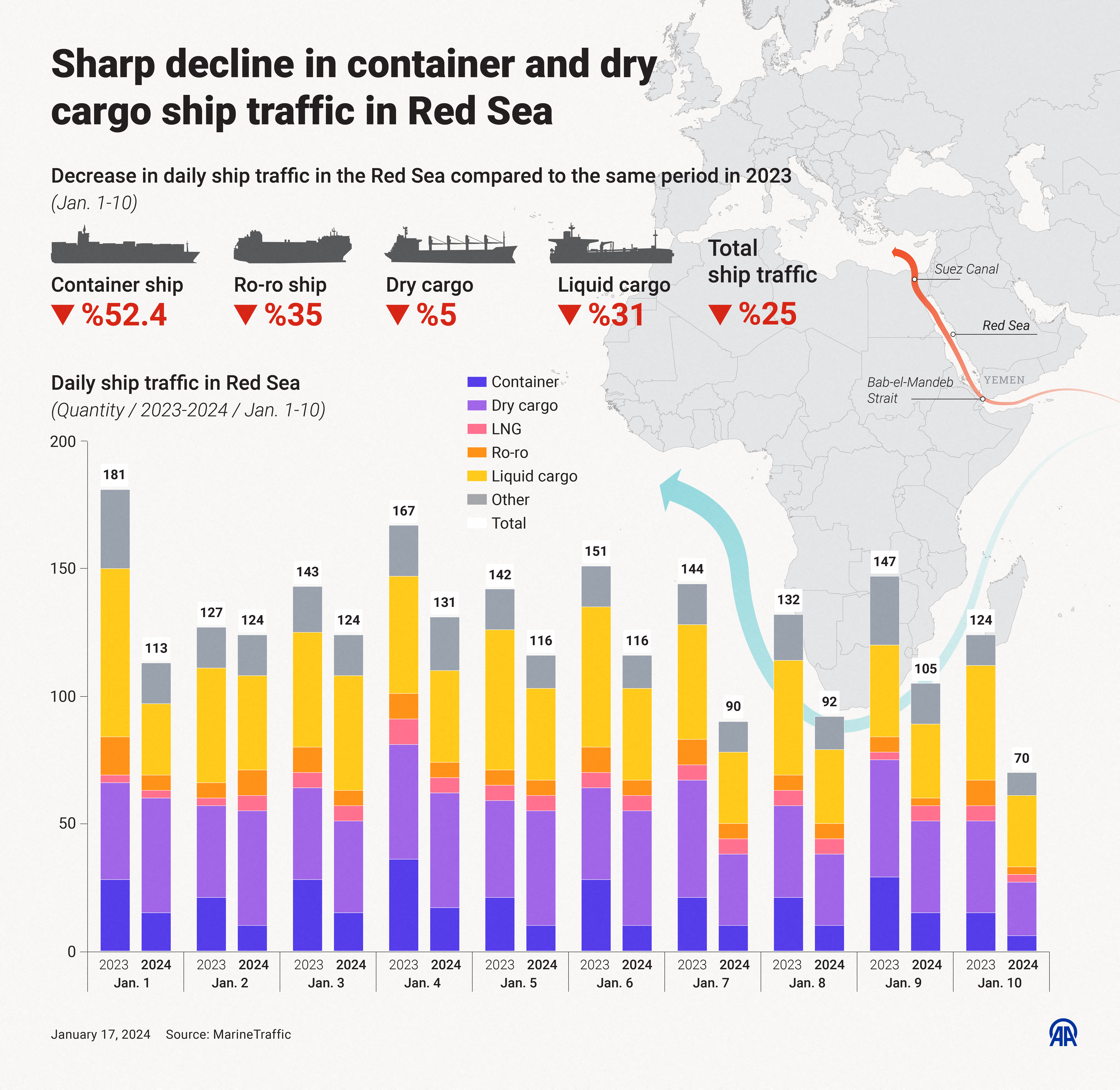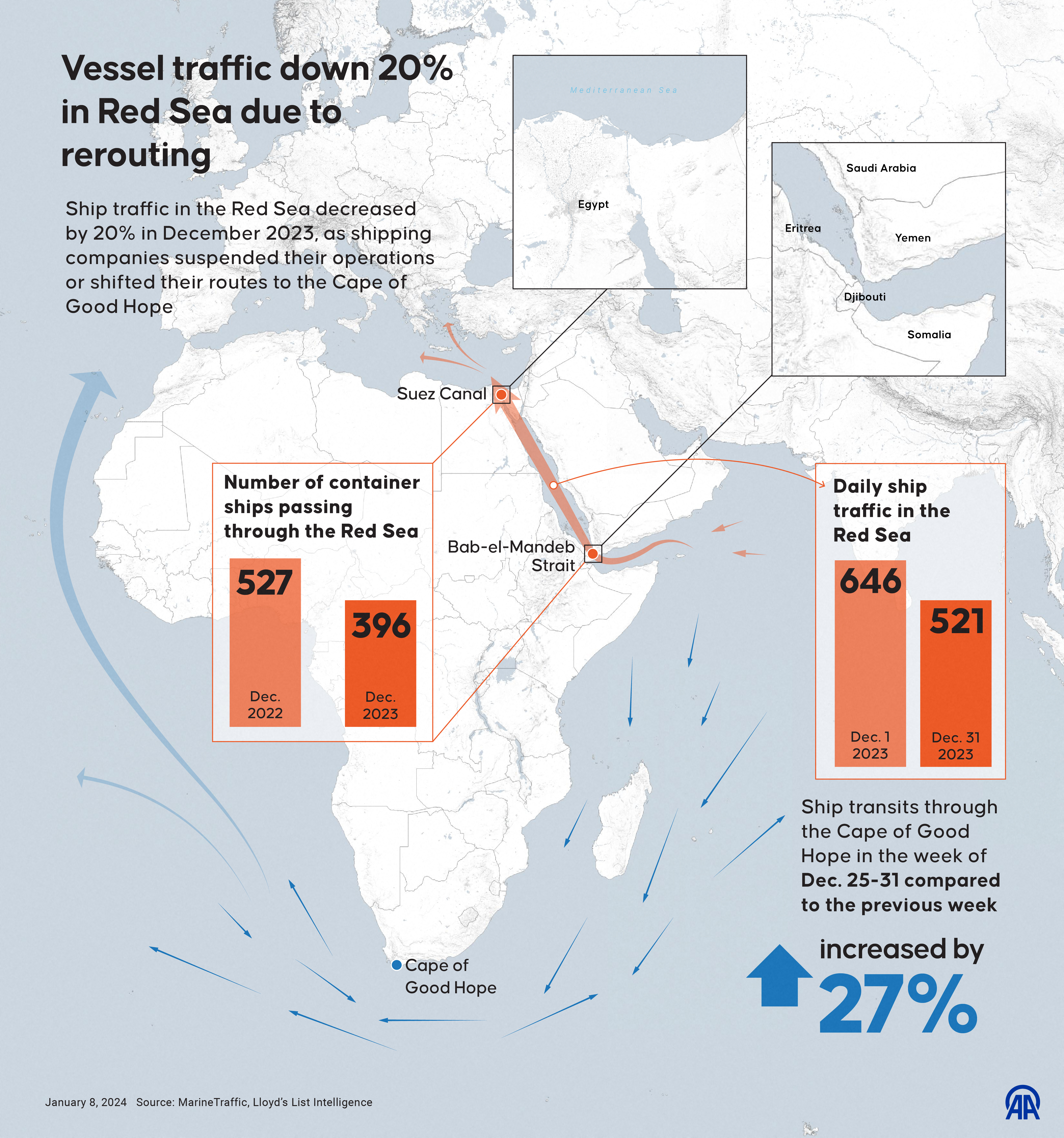

As a result, shipping costs and transit time in the movement of goods between East Asia and Europe increased by up to 50 percent, and imports and exports from Germany and the EU were in some cases lower than in the previous month of November 2023.
The latest update of the index data indicated that the slight negative trend in global trade and trade between major economies continues. Conflict in the Middle East, especially attacks on container ships in the Red Sea, is likely to be one of the reasons for the weak trading during the month.
European exports fell by 2.0 percent, and imports by 3.1 percent in December 2023. German exports fell by 2.0 per cent and imports by 1.8 per cent in the same month, continuing the weak phase seen in recent months.

In the United States, exports also fell by 1.5 percent, and imports by 1 percent, although the sea route through the Red Sea and the Suez Canal plays a smaller role than in Europe.
In contrast, Chinese trade bucked this trend, with exports rising 1.3 percent and imports up 3.1 percent. The institute said parts of that increase may be due to the annual peak ahead of the Chinese New Year.
Julian Haines, director of IFW Kill's Trade Policy Research Center, said diversions in response to the attacks had led to an increase in flights between Asian production hubs and European consumers by up to 20 days.
"This is also reflected in the decline in trade figures for Germany and the European Union, as the goods now transported are still at sea, and have not already been unloaded at ports as planned," Haines added, in a statement.
Cargo traffic in the Red Sea witnessed a sharp decline of 66 percent in December, compared to the previous month, with the average number of containers shipped per day reaching 200,000 containers, compared to 500,000 containers in November. The decline is unprecedented in recent years, marking the lowest level of movement since 2016.

Donald Trump said the US would lower its tariffs on India to 18 per cent after Prime Minister Narendra Modi “agreed” to halt purchases of Russian oil, ending months of trade friction between the countries, Financial Times reports.

Prime Minister Pham Minh Chinh had a meeting in Hanoi on January 29 with visiting President of the European Council (EC) António Costa, during which he expressed his hope for stronger cooperation between Vietnam and the European Union (EU).